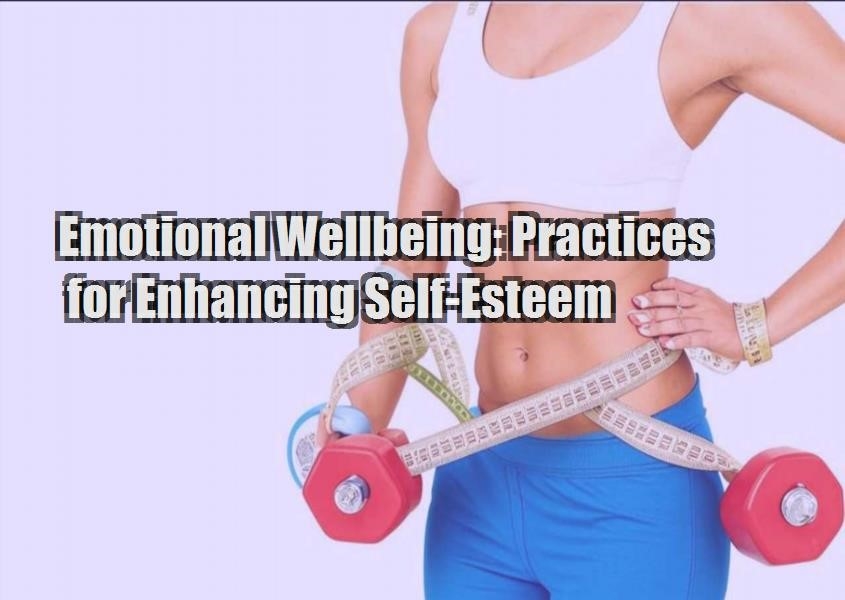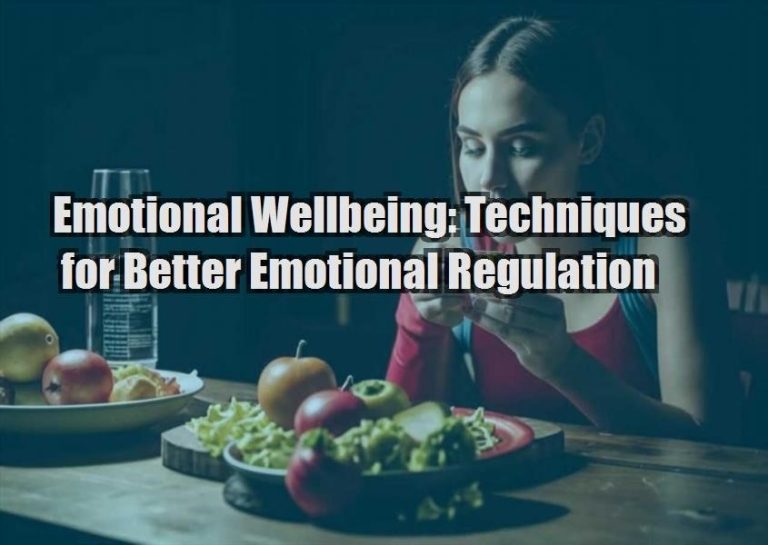Emotional Wellbeing: Practices for Enhancing Self-Esteem
Self-esteem, a fundamental pillar of emotional well-being, plays a crucial role in our happiness, health, and overall quality of life. Nurturing a healthy sense of self-esteem empowers us to lead fulfilling lives, make positive choices, and navigate challenges with resilience. This article explores evidence-based practices to enhance self-esteem, promoting a profound sense of self-worth and well-being.
Understanding Self-Esteem
Self-esteem, often referred to as self-worth, encapsulates our overall assessment of our value as individuals. It encompasses our beliefs about our abilities, strengths, and weaknesses, and influences how we perceive ourselves and interact with the world.
High self-esteem is characterized by feelings of self-confidence, resilience, and a sense of purpose. Individuals with low self-esteem, on the other hand, may struggle with self-doubt, insecurity, and negative self-perceptions.
Practices for Enhancing Self-Esteem
- Self-Reflection and Journaling: Taking time for self-reflection, journaling, and practicing mindfulness can help you gain a clearer understanding of your strengths, weaknesses, and values.
- Positive Self-Talk: Challenge negative self-talk and replace it with positive affirmations. Focus on your accomplishments, qualities, and the things you value about yourself.
- Gratitude Practice: Cultivating gratitude by regularly expressing appreciation for the good things in your life can shift your focus away from negative thoughts and promote a sense of contentment.
- Goal Setting and Achievement: Setting realistic goals and celebrating your accomplishments, both big and small, can boost your self-confidence and demonstrate your abilities.
- Positive Surroundings: Surround yourself with supportive and positive people who uplift and encourage you. Limit exposure to negative or critical environments.
- Self-Care: Prioritize self-care practices such as exercise, healthy eating, and getting enough sleep. Nurturing your physical and mental health contributes to overall well-being and a healthier self-image.
- Cognitive Behavioral Therapy (CBT): CBT is a form of talk therapy that helps you identify and challenge negative thought patterns and develop more positive and realistic perspectives.
- Seek Professional Help: If you struggle with persistent low self-esteem that impacts your daily life, consider seeking professional help from a therapist or counselor who can provide personalized support and guidance.
Benefits of Enhanced Self-Esteem
- Increased confidence and resilience
- Improved physical and mental health
- Greater success in personal and professional life
- Stronger relationships
- Enhanced overall well-being and satisfaction
Conclusion
Enhancing self-esteem is a journey of self-discovery and personal growth. By adopting evidence-based practices and cultivating a positive mindset, you can cultivate a strong sense of self-worth and well-being. Remember, self-esteem is not a fixed trait but rather a dynamic aspect of our emotional life that can be nurtured and developed over time. Embracing these practices can empower you to live a more fulfilling and self-assured life.







